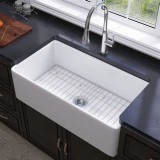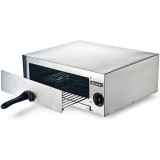Essential Aspects of Farmhouse Kitchen Flooring
Farmhouse-style kitchens evoke a warm, rustic, and inviting ambiance. Flooring plays a crucial role in completing this look and ensuring functionality. When choosing flooring for your farmhouse kitchen, consider these essential aspects:
1. Durability
Kitchen floors endure significant wear and tear, especially in farmhouse kitchens with heavy foot traffic and cooking activities. Opt for flooring materials that can withstand spills, stains, and heavy appliances without denting, scratching, or cracking. Consider options like engineered hardwood, ceramic tile, porcelain tile, or luxury vinyl planks (LVP).
2. Water Resistance
Farmhouse kitchens often involve water-intensive activities, such as washing dishes and using the sink. Choose flooring materials that are water-resistant or waterproof to prevent damage. Ceramic tile, porcelain tile, and LVP offer excellent moisture resistance, while engineered hardwood is moderately resistant.
3. Texture and Style
The texture and style of your flooring should complement the overall farmhouse aesthetic. Choose flooring with a natural, textured finish that reflects the rustic charm of the style. Consider reclaimed wood, distressed wood, or stone-look tiles. You can also add warmth and character with woven rugs.
4. Maintenance and Cleaning
Farmhouse kitchens require regular cleaning to maintain their pristine appearance. Opt for flooring materials that are easy to clean and maintain. Ceramic tile, porcelain tile, and LVP are low-maintenance options that can be swept, mopped, or vacuumed. Engineered hardwood may require occasional polishing or refinishing.
5. Warmth and Comfort
While durability and water resistance are essential, don't forget about comfort. Farmhouse kitchens are often used as gathering spaces, so consider flooring materials that provide warmth and comfort underfoot. Engineered hardwood, with its natural warmth, and stone-look tiles, which can be paired with radiant heating, offer excellent thermal comfort.
6. Cost and Value
Farmhouse kitchen flooring can range from budget-friendly to high-end. Consider your budget and the return on investment (ROI) you expect. Ceramic tile and LVP offer a cost-effective option, while engineered hardwood and stone-look tiles can add value to your home.
7. Seamless Transitions
To maintain the cohesive flow of your farmhouse kitchen, ensure smooth transitions between different flooring areas. For example, if you have a stone-look tile floor in the kitchen and hardwood in the adjacent dining room, consider using a transition strip or threshold to create a seamless connection.
By considering these essential aspects, you can choose the ideal flooring for your farmhouse kitchen that complements the style, enhances functionality, and withstands the rigors of daily life.

Kitchen Inspiration 10 Farmhouse Kitchens Flooring Inc

Farmhouse Kitchen Floor Ideas And Inspiration Hunker Flooring Style

Kitchen Floor Ideas A Farmhouse Reborn

9 Flooring Types For A Charming Country Kitchen

Kitchen Floor Ideas A Farmhouse Reborn

Kitchen Inspiration 10 Farmhouse Kitchens Flooring Inc

Farmhouse Kitchen Design Ideas Twenty Oak

15 Stunning French Farmhouse Kitchens

Top 5 Modern Farmhouse Flooring Picks Carpet One Floor Home

Case Study A Farmhouse Kitchen With Spring In The Air








